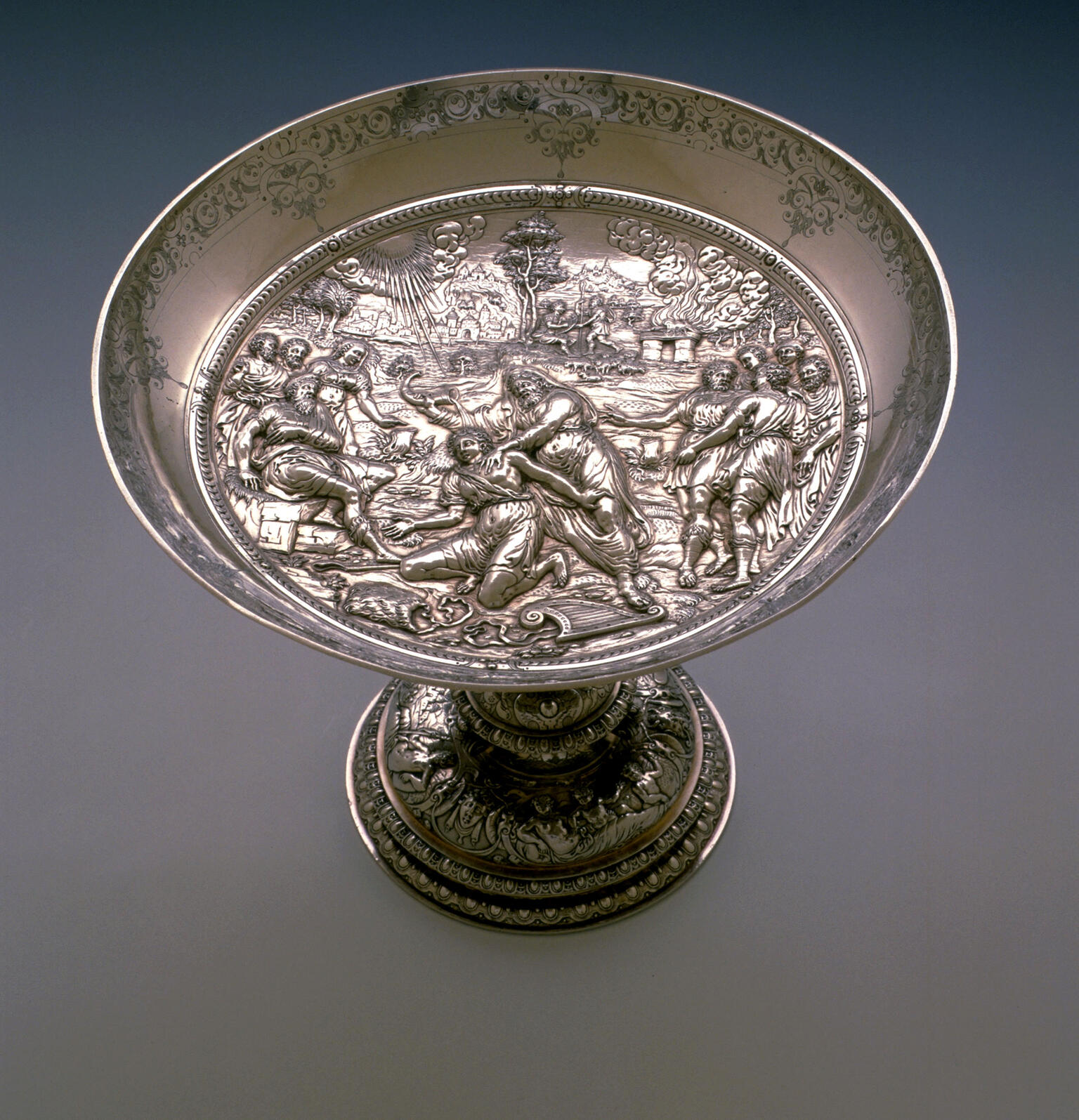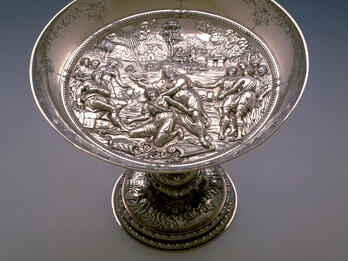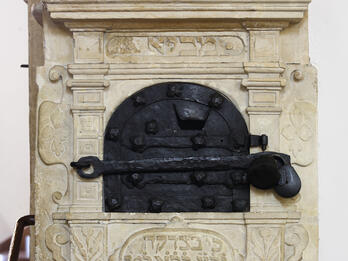Regulamentos (Regulations)
Insofar as the true remedy for assuaging the Lord’s wrath is to turn from evil and do good, and since the best of all benevolent actions is to give alms, whereby, according to sacred scripture, one may escape a violent death, and since (on account of our sins) we see many illnesses, it is thus necessary to apply suitable medicine to this great evil, to placate the Lord’s wrath toward us. Whereby our ḥevra [confraternity] has decreed that the Lord enhance the office whose charge will be to loan to every needy Jewish person, upon pledges, for which there are already seventy-four brothers with ten florins as a down payment for each one and with God’s favor, in time there will be many more, beyond those that we hope will come from outside, because there will be few who at such a small cost would not rejoice in this great mitzvah, which will be administered in the following manner. [ . . . ]
3. That this society shall be called Honen Dalim (Proverbs 28:8), which signifies the pious donor to the poor, and its funds will be dedicated to lending to poor Jews up to the sum of twenty florins for a period of one year, as is stated below, without any type of interest, it being clearly understood that these florins may be loaned only to a family for a period not to exceed one year.
4. That the gentlemen governing this society shall not be able, under pain of conscience, to lend against any pledge, unless it is understood that it is worth one-third the value that they are loaning for it and the terms of the loan shall always be as agreed upon by at least two of them.
5. That whoever needs to avail himself of this society, shall take his pledges to the treasurer’s house and, on the following Sunday, go to fetch his money because every week on that day the gentlemen shall gather at the said house after midday and if it should happen that a festival or festival eve fall on a Sunday, the gentlemen shall be obliged to gather on the preceding Thursday and together shall estimate the tokens, whereupon the money shall be given forthwith.
6. That no one shall be able to give pledges for anyone else, saying that it is for himself and whenever the said gentlemen have any suspicion that this is the case, they shall administer an oath to whomever brings the token and, if they find at any time that someone has committed fraud, after having sworn to the contrary, the token shall be sold immediately and everything that is sold shall become irretrievably part and parcel of the capital of this society. And if he be poor and in need of tzedakah, it shall be taken out and he shall never again enjoy the benefits of this holy society, because we have found that in order to succor the needy poor and maintain this mitzvah, we must forestall such deceit by the strictest of means.
7. That money from this society shall not be lent against bed blankets, used sheets, and mattresses, or against any implement used in any trade whatsoever, for this runs counter to what is commanded in our sacred law.
8. That no loan shall be made to any child that is in his father’s house without the latter’s consent, nor to a woman without her husband’s consent if he be in the country, nor to the child of a widow without his mother’s consent.
9. That the elected treasurer and administrators may lend the money only for a given period and whatever is not paid by the first of Hesvan [Ḥeshvan], from that day onward until the end of the month, the pledges shall be sold, without recourse of payment and that month no money shall be loaned until everything is sold, so that they surrender all the funds in their entirety to the said treasurer and administrators. And if they sell the pledges, they shall use the funds in the synagogue where the treasurer is or wherever they deem best, making the other synagogues aware of the day set aside for the said sale—and whatever is left over from what was pledged shall be returned to its owners and cannot be used by the said gentlemen who manage this mitzvah in any way on behalf of the owners, but [they must] actually sell the pledges in due course.
Credits
Published in: The Posen Library of Jewish Culture and Civilization, vol. 5.







